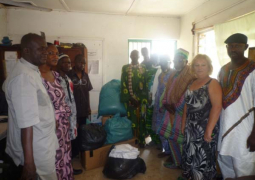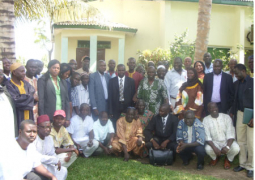The two-day 67th ordinary session of the ECOWAS council of ministers opened at the ECOWAS Commission on Monday 19th December 2011 to, among other issues, consider the outcome of the last Ministerial Monitoring Committee meeting on the negotiation of the Economic Partnership Agreement (EPA) between West Africa and the European Union.
At its 30th November 2011 meeting in Accra, Ghana, the committee deferred to the council a decision on the next step in the negotiations, following disagreements with the EU, mainly over the size and schedule of liberalization of the West Africa market and the EU position on a regional fund to enable West Africa cope with the costs of implementing the agreement.
The council session will also examine the report of the meeting with the EU on the utilization of the regional indicative programme of the 10th European Development Fund (EDF), held 13th December 2011 in
Also on the agenda are the presentation of the ECOWAS Master Plan for the Generation and Transmission of Electrical Energy, and the report of the Ministerial Conference on Humanitarian Assistance and Internal Displacement in West Africa held last July in
The ministers will also consider a memorandum on issues related to the air transport sector, take a presentation on the Charter for Food Crisis Prevention and Management in the region, and discuss the agricultural situation and the food prospects in the Sahel and
The council will consider the 2011 Final Report of the President of the ECOWAS Commission, the status of tasks assigned by the 66th ordinary session of council, as well as the report of the 10th Meeting of the Administration and Finance Committee, the Financial Controller’s 2011 Interim Report and the report of the 19th Meeting of the Audit Committee.
The ministers will also propose a draft agenda for the next summit of the Authority of ECOWAS Heads of State and Government.
The council comprising ministers responsible for ECOWAS affairs in member states is vested, under Article 10 of the ECOWAS Treaty, with responsibility for policy direction for the functioning and development of the commission and institutions of the community.
It is charged with making recommendations to the Authority of Heads of State and Government on any action aimed at attaining the objectives of the community.
The council is also empowered to issue directives on matters of coordination and harmonization of the community’s economic integration policies.




